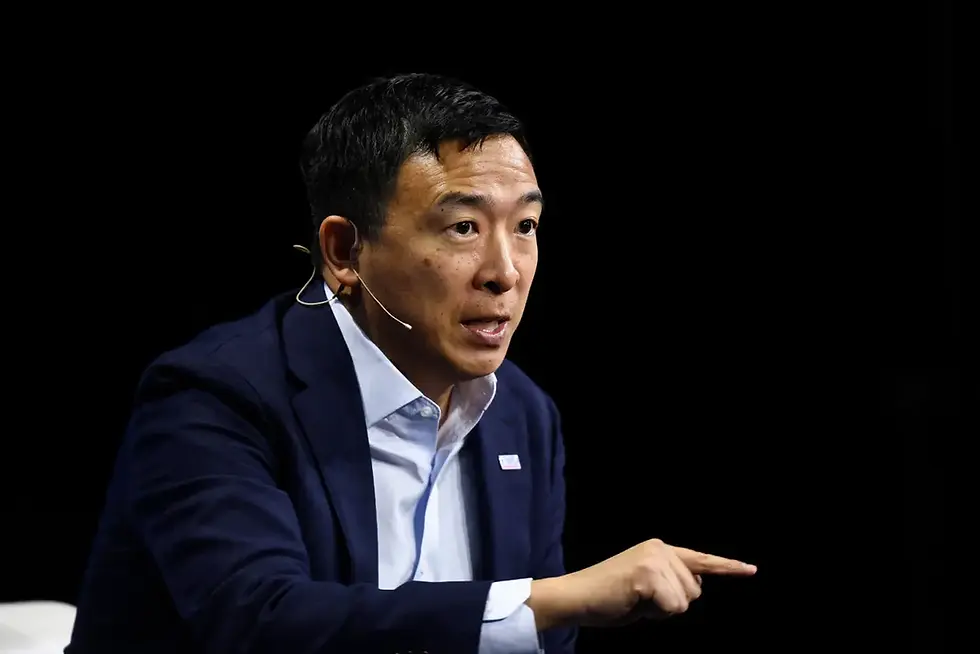The AI Paradox: Boosting Productivity While Weakening Critical Thinking
- Lindsay Grace

- Feb 14, 2025
- 4 min read

Artificial Intelligence (AI) is reshaping the way we think, learn, and work. The rise of Generative AI (GenAI)—large-scale models capable of producing human-like text, images, and even code—has sparked a debate: Is AI enhancing our ability to think critically, or is it making us intellectually passive?
A recent study from Microsoft, Carnegie Mellon University, and Swiss Business School has shed light on this paradox. The findings reveal that people who have greater confidence in AI are less likely to engage in critical thinking, whereas those with higher self-confidence are more inclined to analyze and question AI-generated responses.
Moreover, the study found that instead of fostering problem-solving skills, AI has turned users into "supervisors" of AI-generated work rather than active thinkers. This shift has far-reaching consequences, influencing everything from education and workplace productivity to memory retention and independent reasoning.
This article takes a deep dive into:
How AI is transforming critical thinking.
The historical context of human cognition and technological dependency.
The risks of digital amnesia and cognitive offloading.
The balance between efficiency and intellectual depth.
Strategies for maintaining critical thinking in an AI-driven world.
The Evolution of AI and Its Role in Human Cognition
A Brief History of AI in Decision-Making
AI has come a long way since its early development in the 1950s. The shift from rule-based systems to deep learning models has fundamentally changed how humans interact with technology.
AI Era | Technological Breakthroughs | Impact on Thinking |
1950s-1970s | Symbolic AI, Rule-Based Systems | Assisted in structured decision-making but required explicit programming |
1980s-1990s | Expert Systems, Neural Networks | Started mimicking human decision-making but lacked adaptability |
2000s-2010s | Machine Learning, Big Data | Automated repetitive tasks, reducing human involvement in data analysis |
2020s-Present | Generative AI, Large Language Models | Produces human-like content, leading to increased AI dependency |
While AI has enhanced efficiency, it has also reshaped human cognition by altering how we approach problem-solving and analysis.
The Shift from Problem-Solving to AI Supervision
Historically, critical thinking has involved:
Information gathering – Searching, cross-referencing, and evaluating data.
Analysis – Breaking down complex topics to understand relationships.
Synthesis – Constructing new ideas based on logical reasoning.
Solution generation – Developing unique solutions to problems.
However, studies show that with AI-generated content, these steps are being replaced with AI supervision rather than independent problem-solving.
A key study found that users interacting with AI-powered writing assistants spent:
Activity | Time Spent Before AI | Time Spent After AI |
Research & Information Gathering | 45% | 20% |
Critical Analysis & Problem-Solving | 35% | 15% |
AI Verification & Oversight | 5% | 40% |
Content Refinement & Personalization | 15% | 25% |
This shift shows that while AI helps streamline content creation, it discourages deep cognitive engagement, making users passive validators rather than active thinkers.
The Rise of Digital Amnesia: Are We Losing Our Ability to Remember?
The Cognitive Trade-Off of AI Dependence
The term digital amnesia refers to the declining ability to remember information due to the overuse of digital tools. Research by Kaspersky Lab found that:
91% of people use the internet as a "universal memory bank."
44% of young adults forget personal details they assume their smartphones will store.
70% of respondents couldn’t recall their partners' phone numbers without checking their devices.
Dr. Michael Gerlich, a cognitive scientist, explains:
“Our dependence on AI for information retrieval makes us prioritize access over retention. While this improves efficiency, it diminishes our ability to recall and connect knowledge independently.”
This trend has serious implications:
Effect of Digital Amnesia | Real-World Consequence |
Reduced knowledge retention | Less ability to draw from memory in discussions |
Decline in deep reading & comprehension | Shallow understanding of complex topics |
Over-reliance on AI for critical thinking | Increased susceptibility to misinformation |
AI's convenience is undeniable, but the risk is that users outsource their thinking process, reducing the depth of their cognitive engagement.
The Efficiency vs. Critical Thinking Trade-Off
While AI improves speed and productivity, it may also lead to intellectual complacency. The Microsoft study found that AI users tend to:
Produce less diverse solutions than those who rely solely on human cognition.
Accept AI-generated content without deep scrutiny, leading to homogenized thinking.
Assume AI is always correct, ignoring possible biases and hallucinations.
Benefit of AI | Potential Risk |
Increased efficiency | Reduced independent problem-solving |
Faster content generation | Higher risk of factual errors |
Enhanced accessibility | Potential loss of deep expertise |
AI’s predictive capabilities are based on pattern recognition, not independent reasoning, which means that human oversight is more essential than ever.

How to Maintain Critical Thinking in an AI-Driven World
1. Use AI as a Thinking Partner, Not a Replacement
Instead of accepting AI responses at face value, challenge them. Ask AI follow-up questions, refine prompts, and compare sources to ensure accuracy.
2. Cultivate AI Literacy and Digital Skepticism
AI users must be trained in bias detection, misinformation analysis, and source verification. This ensures that AI remains a tool for enhancement, not dependency.
3. Encourage Human-AI Collaboration
Companies and institutions should promote AI literacy, ensuring people use AI to augment, not replace, critical thinking skills.
The Future of AI: Designing Smarter Systems
AI developers must take proactive measures to ensure that AI tools encourage cognitive engagement, rather than discouraging it. This includes:
Transparency in AI outputs – Showing sources and confidence levels for generated answers.
Error detection features – Highlighting areas where human oversight is needed.
Personalized AI engagement – Encouraging users to interact critically with AI suggestions.
Microsoft researchers suggest that future AI models should integrate "critical thinking prompts" to challenge users to verify AI-generated responses.
Conclusion
AI is reshaping human cognition in profound ways. While it enhances efficiency, it risks diminishing our ability to think critically and retain information.
To strike the right balance, individuals must:
Engage with AI actively, not passively.
Question AI-generated content to ensure depth and accuracy.
Cultivate human intuition and reasoning, ensuring AI remains an assistant, not a replacement.
For expert insights on AI, cybersecurity, and emerging technologies, follow Dr. Shahid Masood and the expert team at 1950.ai. Their work explores the intersection of AI, knowledge work, and global decision-making.




Comments